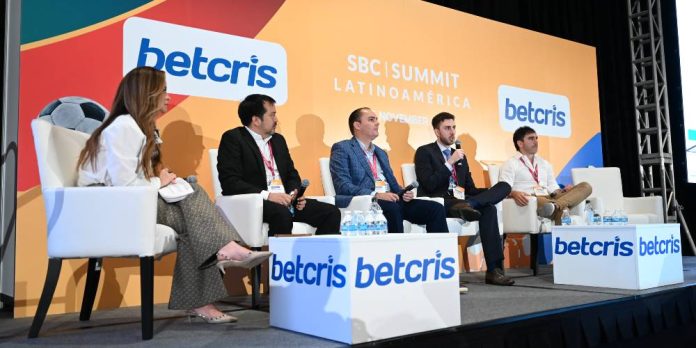With many countries in Latin America on the verge of regulating gambling, one major question that keeps coming up is: what is the best way to do that?
A panel at last week’s SBC Summit Latinoamerica, a panel of experts discussed just that during a session entitled Creating the Perfect Scenario for Online Betting in South America. GLI VP for Latin America & Caribbean Karen Marcela Sierra-Hughes moderated the panel, which featured:
Gonzalo Pérez: CEO Apuesta Total
Juan Barrachina: Sales Director Kambi
Udo Seckelmann: Lawyer for Bichara & Motta
Ignacio Iturraspe: Director of Sales Stats Perform
Sierra-Hughes began by asking the geographically diverse group of panelists which regulatory framework they would most prefer.
Barrachina cited several unique things individual jurisdictions do well rather than go with a single system. For example, Colombia has an open market with an appropriate tax rate. Comparably, high taxation in places like Argentina and Panama are discouraging operators from getting involved.
Pérez pointed to how Peru handles casino licensing and thinks something similar could be configured for sports betting and online gambling. With a 12% tax rate, operators have room to work without worrying too much about margins. He also noted the warranties on the license ensure that, “if the process is not working right, you get your money back.”
Seckelmann rather humorously offered up Brazil as an example of what not to do rather than pointing to a group doing things right. The clock is also ticking on the jurisdiction. The country has until Dec. 12 to regulate sports betting, otherwise the law expires. There are several problematic elements, including a R$22M ($5M USD) licensing fee every five years. As much as the regulators are seemingly aiming to bring money into the country, Seckelmann also lamented the scope of the law is purely on sports betting when there are other more lucrative verticals to pursue like online casinos.
Another problem Seckelmann thinks the country needs to address is the taxation on individual winners, which amounts to 30% on any prizes valued R$1,900 (~$368 USD).
For Iturraspe, a successful market in LatAm is about more than just good regulations. In order for the market to work, the rest of the world needs to realize there is not some sports betting gold mine awaiting them in South and Central America. In addition to being a low margin business just like other parts of the world, he warns that a differentiated product is absolutely necessary, particularly because in LatAm, every sport matters, not just soccer. Unless an operator invests time and money into integrity, official partnerships, and creating a product specific to the marketplace, no amount of taxation or licensing fees are going to fix things.













